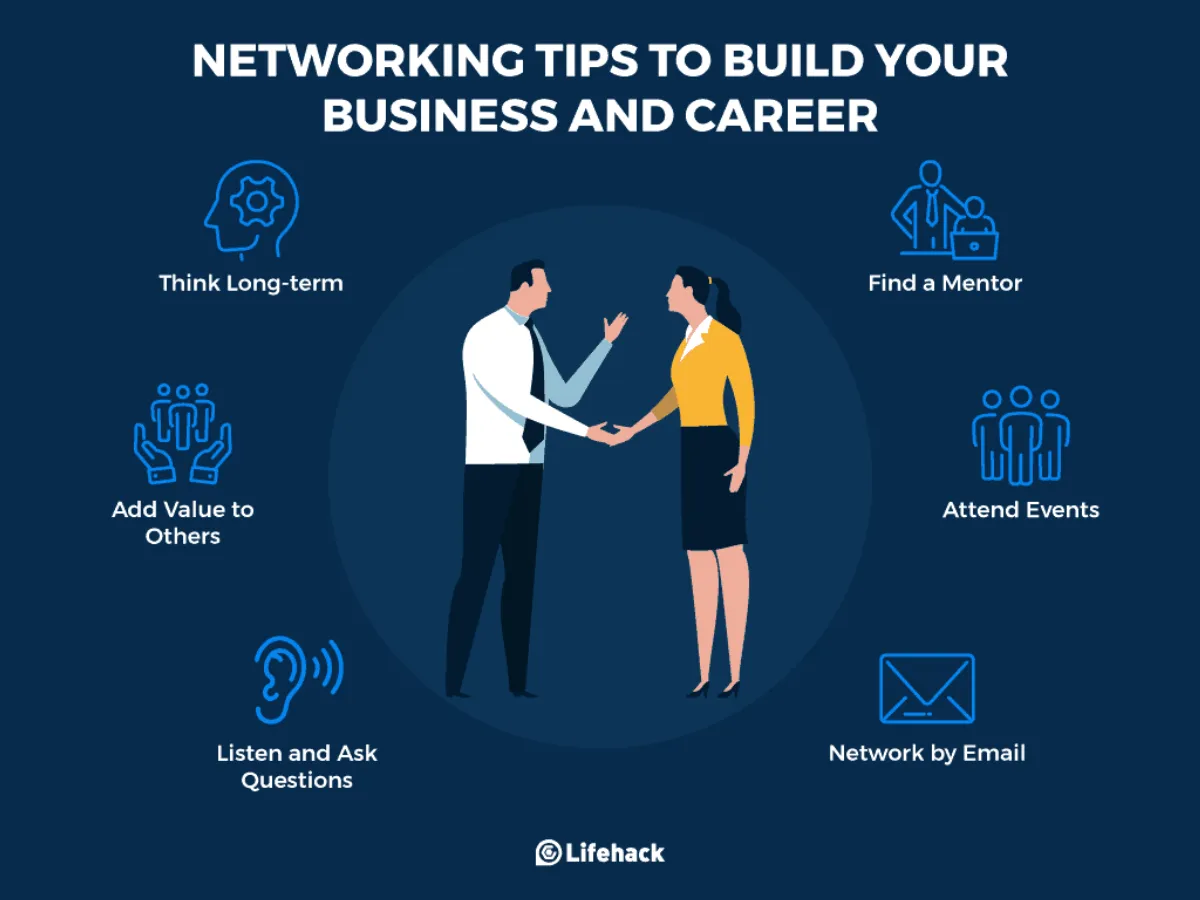In today’s competitive job market, establishing a strong personal brand is essential for career advancement. This article explores the strategies and benefits of building a compelling personal brand to stand out and succeed in your professional journey.
Understanding Personal Branding

Personal branding is the process of establishing a unique and memorable impression about yourself in the minds of others. It’s about defining your values, skills, passions, and expertise, and then showcasing them consistently across various platforms. It’s not just about self-promotion; it’s about strategically crafting a professional image that aligns with your career goals and resonates with your target audience.
Why is understanding personal branding crucial for career advancement? In today’s competitive job market, simply possessing the right qualifications isn’t enough. Employers receive numerous applications from skilled individuals. A strong personal brand sets you apart by:
- Highlighting your unique value proposition: What specialized skills, experience, or perspectives do you offer that others might not?
- Building credibility and trust: A consistent and authentic brand helps establish you as an expert in your field.
- Expanding your network: A strong online presence and active engagement can lead to valuable connections and opportunities.
- Positioning you for desired roles: By showcasing your expertise in a specific niche, you attract opportunities aligned with your career aspirations.
Understanding personal branding is the first step towards taking control of your career trajectory. By strategically shaping how you’re perceived, you can open doors to exciting opportunities and accelerate your professional growth.
Identifying Your Unique Value

Building a strong personal brand hinges on understanding and communicating what makes you uniquely valuable. This isn’t about boasting, but rather about pinpointing your distinct strengths, passions, and experiences that set you apart in the professional world.
Here’s how to start identifying your unique value:
1. Reflect on Your Strengths and Skills:
Consider the skills you possess that are most relevant to your career goals. Are you a strong communicator, a creative problem-solver, or a highly organized individual? Make a list of both hard skills (like software proficiency) and soft skills (like teamwork or adaptability).
2. Identify Your Passions:
What truly excites you about your work? What are you naturally drawn to? Your passions are often intertwined with your strengths and can be powerful drivers of your career success. When you’re passionate about what you do, it shows in your work and resonates with others.
3. Analyze Your Experiences:
Every experience, from previous jobs to volunteer work, contributes to your unique value proposition. Reflect on the challenges you’ve overcome, the projects you’ve successfully completed, and the skills you’ve developed along the way. These experiences shape your perspective and differentiate you from others in your field.
4. Seek Feedback:
Sometimes, it takes an outside perspective to fully recognize our strengths. Reach out to trusted colleagues, mentors, or friends and ask for honest feedback about your skills and what they perceive as your unique talents.
Creating an Online Presence

In today’s digital age, establishing a strong online presence is non-negotiable for career advancement. Your online presence is the modern-day resume and portfolio, offering potential employers and collaborators a window into your skills, experience, and personal brand.
1. Choose Your Platforms Wisely
Not all online platforms are created equal. Carefully select platforms that align with your professional goals and target audience. LinkedIn is a must-have for professionals, while platforms like Twitter, Instagram, or even a personal website can be valuable depending on your industry and interests.
2. Craft a Compelling Profile
Your profile is your first impression. Ensure your LinkedIn profile is up-to-date, showcasing your experience, skills, and aspirations. Use a professional headshot, write a captivating headline and summary, and highlight your accomplishments with specific examples.
3. Share Valuable Content
Position yourself as a thought leader in your field by sharing relevant and valuable content. This could include articles, blog posts, videos, or even engaging with industry discussions. Consistently providing insightful content demonstrates your expertise and builds credibility.
4. Network Strategically
Connect with professionals in your industry and related fields. Engage with their content, participate in relevant groups, and attend online events. Building a strong network online can open doors to new opportunities and collaborations.
5. Monitor Your Digital Footprint
Regularly Google yourself to see what information appears about you online. Ensure your online presence reflects your desired professional image. Manage your privacy settings and be mindful of the content you share, as it contributes to your overall digital footprint.
Networking Effectively

Building a strong personal brand goes hand-in-hand with effective networking. It’s not enough to just have a great online presence – you need to connect with people in real life and build relationships. Here’s how to leverage networking to enhance your personal brand:
Attend Industry Events
Conferences, workshops, and seminars are prime opportunities to meet individuals in your field. Come prepared to engage in meaningful conversations, exchange business cards, and follow up with new contacts afterward.
Utilize Online Platforms
LinkedIn is a powerful tool for professional networking. Optimize your profile to highlight your skills and experience, join relevant groups, and actively participate in discussions to expand your reach and build connections.
Engage in Informational Interviews
Identify professionals you admire and reach out for informational interviews. These casual meetings allow you to learn more about their career paths, gain industry insights, and make a memorable impression.
Nurture Your Network
Networking isn’t a one-time activity. Stay in touch with your contacts, offer support when possible, and maintain genuine relationships. Regularly engage with your connections on social media and congratulate them on their achievements.
Become a Valuable Resource
Strive to be a valuable asset to your network. Share insightful content, offer help when needed, and actively participate in discussions. By positioning yourself as a thought leader and reliable resource, you’ll enhance your personal brand and become someone others want to connect with.
Showcasing Your Skills

A strong personal brand effectively communicates your skills and value to potential employers. You’ve identified your strengths and passions – now it’s time to showcase them. Here’s how:
1. A Portfolio That Pops
A portfolio, whether online or a physical presentation, offers tangible proof of your abilities. Tailor it to your field:
- Writers: Include writing samples, blog posts, published articles.
- Designers: Showcase design projects, logos, websites.
- Developers: Feature coding projects, apps, websites, GitHub contributions.
2. The Power of Social Media
Platforms like LinkedIn, Twitter, or industry-specific sites are your allies.
- Share your expertise: Post insightful articles, comment on industry trends, engage in relevant discussions.
- Highlight accomplishments: Don’t be shy about sharing successes, awards, or positive feedback.
- Network strategically: Connect with professionals in your field, follow thought leaders, join relevant groups.
3. Content is King (and Queen)
Creating valuable content strengthens your authority and attracts a following.
- Blog posts: Share your knowledge, insights, and experiences.
- Articles: Contribute to industry publications or websites.
- Videos: Tutorials, webinars, or vlogs offer engaging ways to demonstrate your expertise.
4. Speaking Up and Standing Out
Public speaking engagements, even in small settings, position you as a thought leader.
- Conferences and Workshops: Submit proposals to speak at industry events.
- Webinars and Online Events: Host online sessions to share your knowledge.
- Local Meetups and Groups: Offer to speak at smaller gatherings to build confidence and visibility.
Continuously Improving Your Brand

Building a strong personal brand isn’t a one-time project; it requires ongoing effort and refinement. Here’s how to ensure your brand remains relevant and impactful:
1. Stay Updated in Your Field
The professional landscape is constantly changing. To maintain a strong personal brand, commit to continuous learning. Attend industry events, take online courses, read relevant publications, and engage in discussions with other professionals. Demonstrating your commitment to staying ahead of the curve enhances your credibility and positions you as a thought leader.
2. Seek Feedback and Adapt
Don’t be afraid to ask for feedback on your personal brand from trusted colleagues, mentors, or even clients. Are you communicating your value effectively? Is your online presence consistent with your professional goals? Use constructive criticism to identify areas for improvement and adapt your brand accordingly.
3. Track Your Progress and Measure Results
Just like any other aspect of your career, it’s crucial to track the effectiveness of your personal branding efforts. Are you gaining more visibility on LinkedIn? Are you receiving more inquiries from recruiters? Set measurable goals and monitor your progress to ensure your strategy is delivering the desired results.
4. Evolve with New Experiences
As you gain new skills, take on new challenges, and evolve in your career, reflect these developments in your personal brand. Update your online profiles, resume, and portfolio to showcase your growth and highlight your expanded expertise.
Conclusion
Developing a strong personal brand is crucial for career growth. Consistent online presence, networking, and showcasing expertise can set you apart and open up new opportunities for professional advancement.

